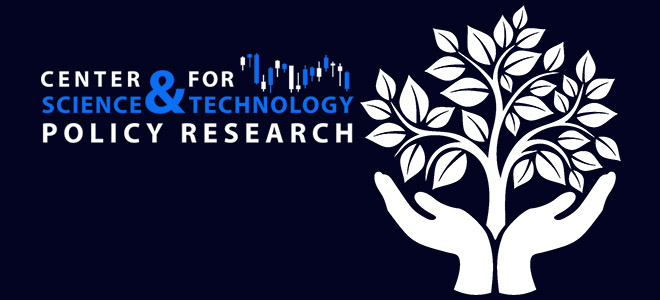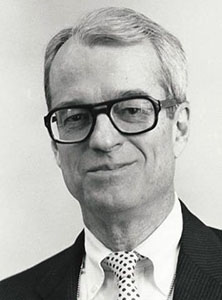Center News |
||||||||||||||||||
CSTPR 2018 Seed Fund Winners for Common Themes Development
|
||||||||||||||||||
Over the past few years (2016-2017), CSTPR has developed four common themes and priority areas for research, education and service. These are (1) Science and Technology Policy, (2) Innovations in Governance and Sustainability, (3) Drivers of Risk Management Decisions, and (4) Communication and Societal Change. CSTPR put a call out for proposals that solicit funding and that will further develop our four themes in the upcoming 2018 calendar year. The winning proposals will support CSTPR-related efforts as they provide initial support for further development of the projects. These will then help carry out our CSTPR mission and vision. 2018 Seed Fund Winners
| ||||||||||||||||||
2018 Radford Byerly, Jr. Award in Science and Technology Policy |
||||||||||||||||||
Background Award Eligibility Award Criteria
Application Process The award recipient is expected to make one presentation in CSTPR’s noontime seminar series on a topic of his/her choice and write one article for the CSTPR blog, Prometheus in Fall 2018. Applicants will be notified by December 15, 2017 |
||||||||||||||||||
Red Cross Red Crescent Climate Centre Internship Program |
||||||||||||||||||
|
||||||||||||||||||
Improving Environmental Communication and Adaptation Decision-Making in the Humanitarian Sector CU-Boulder has partnered with the Red Cross Red Crescent Climate Centre (RCRCCC) to place graduate students in locations in eastern and southern Africa each summer. This collaborative program targets improvements in environmental communication and adaptation decision-making as well as disaster prevention and preparedness in the humanitarian sector. It connects humanitarian practitioners from the Red Cross/Red Crescent Climate Centre – an affiliate of the International Federation of Red Cross and Red Crescent Societies – with graduate student researchers at the University of Colorado who are interested in science-policy issues. Through this program we strive to accomplish three key objectives:
This internship program will place 1-2 PhD and/or Master’s degree students in an IFRC regional field office, a National Society branch office, or with a partner organization for a period of approximately 3 months. The RCRCCC supervisors will liaise with specific IFRC field offices to identify potential projects and placements. Once projects are identified, RCRCCC supervisors will work with CU Boulder Director Max Boykoff, CU Boulder Graduate Coordinator Katie Chambers and the student to design a scope of work. Projects can encompass, but are not limited to, topics such as the use of scientific information in decision making, communication of probability and uncertainty, perceptions of risk, and characterizing vulnerability and adaptive capacity. Placements in the field will address specific needs identified by IFRC field staff related to challenges of science communication and adaptation decision-making. Participants will be required to write six blog posts from the field during this placement, give some presentations (e.g. in ENVS, in the CSTPR brownbag series) upon return, and complete a report at the conclusion of their internship detailing their experience and research outcomes. $5,000 funding in total will be provided to offset expenses (in-country housing, food, airfare and in-country transportation). Expenses can vary widely depending on the location and nature of the placement. Interns will work with CU-affiliated travel agents to arrange round-trip airfare to their field site. Due to this $5,000 limit, applicants are encouraged to seek additional funds from alternate sources, as expenses can exceed this budgeted amount. Application Details for Summer 2018 Successful candidates must be self-starters and capable of adapting to independent working conditions. Students must have the consent of their graduate advisor to participate. A detailed terms of reference tailored to each intern will be developed by the RCRCCC based upon their needs and the intern’s skills in the months leading up to placement in the field. For more information or to apply see the Red Cross Red Crescent Climate Centre website. |
||||||||||||||||||
CSTPR Welcomes New Affiliates and Students |
||||||||||||||||||
|







 The Center for Science and Technology Policy Research (CSTPR) within the Cooperative Institute for Research in Environmental Sciences (CIRES) at CU-Boulder is offering a $1500 award to an eligible CU-Boulder student.
The Center for Science and Technology Policy Research (CSTPR) within the Cooperative Institute for Research in Environmental Sciences (CIRES) at CU-Boulder is offering a $1500 award to an eligible CU-Boulder student.






